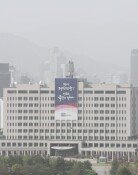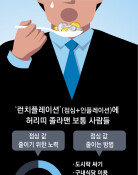Putins winter Olympics, Putins Ukraine
Putins winter Olympics, Putins Ukraine
Posted February. 25, 2014 04:42,
The political leader who received most attention at this years Sochi Winter Olympics was Vladimir Putin, the president of the events host Russia. Through a sports extravaganza that cost 51 billion U.S. dollars, the largest amount in Olympic history, Putin sought to show to the world a new and stronger Russia. As he hoped, Russia ranked first overall with 13 gold medals, 11 silvers and nine bronzes. Some critics satirically say that it was Olympics by Putin, of Putin and for Putin. The international community can hardly take its eyes off him even after the end of the Olympics. The worlds attention is focusing on how Putin, now taking a sigh of relief after the conclusion of the Olympics, will cope with the Ukraine crisis, which has witnessed tragic violence of blood-shedding clash.
Ukraine gained independence after the collapse of the former Soviet Union in 1991, but has hardly seen stable political situation over the years. The western territory close to the West and the eastern territory friendly with Russia have been in constant conflict and animosity across the border of the Dnieper River. The two regions use different language and have different religions as well. Situated at geopolitically important location, the country is rich in grains production and natural resources, but its economy is on the verge of default due to corruption and incompetence of its leadership. If things turn from bad to worse, it could see the country split into two due to civil war, just like the former Federal Republic of Yugoslavia. The U.S., Russia, Germany and France have emphasized unity of its national territory in a bid to stop escalation of violence and separation of the country.
Anti-government demonstrations, which erupted in November last year due to President Victor Viktor Fedorovych Yanukovychs surprise denial of free trade talks with the European Union and decision to take a 15 billion-dollar economic aid package from Russia, saw a drastic twist over the last weekend. The parliament impeached the president by holding him responsible for firing of shots that killed more than 80 people recently, and released Yuliya Tymoshenko from prison. Immediately after her release, Tymoshenko, who spearheaded the peaceful orange revolution 10 years ago by raising issue with presidential election irregularities committed by Yanukovych, declared that You have removed cancer of Ukraine. Yanukovych fled to his power base of the eastern territory to avoid arrest, but has been dumped by the opposition party as well.
Ukraines future will be determined at early presidential election scheduled in May this year, but a variable to the situation is whether Russia will intervene or not. Chances are high that Russia, which has fleet deployed on the Crimea Peninsula in southern Ukraine, will regard Ukraines strengthening ties with the West as infringement of its core national interests. In 2008, Russia invaded its neighboring country Georgia at the pretext of protecting people with its citizenships. One cannot rule out the possibility that President Putin will take an ill-advised act in a bid to regain Russias past influence on the former Commonwealth of Independent States countries. The ambition of a Great Russia, which was displayed through the Winter Olympics, should not be extended to Ukraine.







